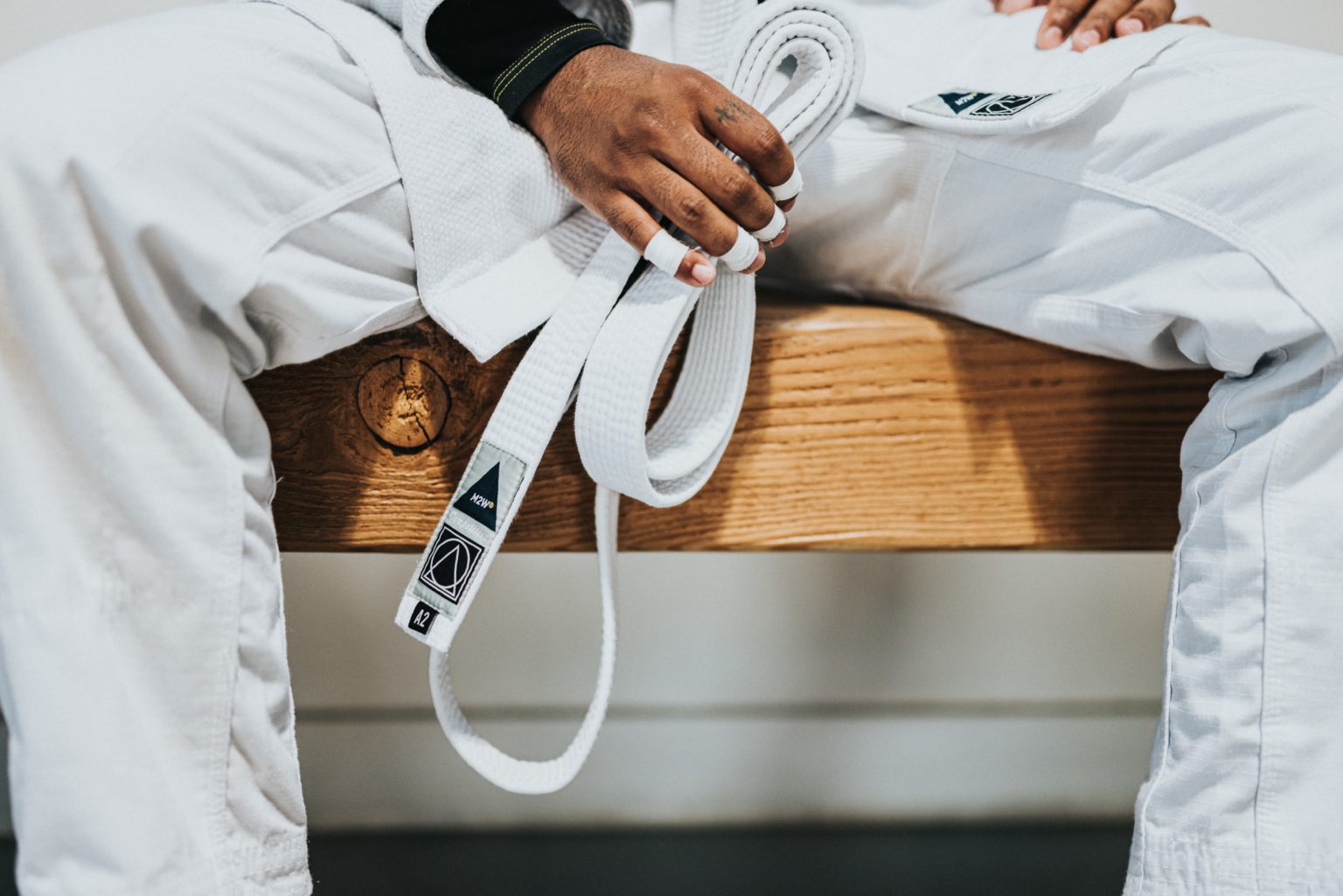
I attended my first Brazilian jiu-jitsu class a little over seven months ago. If you don’t know much about it, jiu-jitsu is a martial art based on ground fighting and is one of the fastest-growing combat sports in the world.
Jiu-jitsu attracts a passionate and dedicated community, which is one of the reasons I first became intrigued by the sport. People who train it become obsessed with it. You wouldn’t know it until you started paying attention, but nearly one in five gyms in the U.S. has a jiu-jitsu program. I started partly because I wanted to know what all the hype was all about.
On a personal level, I was also looking for a challenge. I wanted to see what it would feel like to start as a complete beginner in a sport in which I had zero experience. And I wanted to write about the learning process along the way.
It’s been quite the journey so far. I’ve quickly come to appreciate the sport — or, the “gentle art” as it’s often called — and have developed a deeper love for it than I ever expected. That doesn’t mean it has come easy to me. Although I have days where things feel like they’re starting to click — days when I leave training with a big, dorky smile on my face, excited about the prospect of progress — those days are rare. More often, I leave feeling frustrated and incompetent, realizing just how long of a road I have ahead of me and wondering if I’ll ever feel like jiu-jitsu is something I can do. More than once, I’ve left the gym fighting back tears, only to end up sobbing when I get into my car, desperately hoping none of my peers see me.
Still, I’m committed to the craft of jiu-jitsu. More importantly, I’m committed to the learning journey despite (or maybe because of) the ups and downs. I train twice a day most days of the week (I’ll admit that my dedication can verge on obsessive — I have to constantly keep myself in check to avoid overtraining and burnout). After each training session, I write down notes about the specific techniques I worked on that day; the details, what I did well in, and what I need to improve on. Then, I watch videos of the same techniques and visualize myself doing them as an attempt to cement them in my long-term memory.
I’ve learned a lot so far. So much, in fact, that I often feel end my days like I can’t fit anything else into my working memory, just hoping that some of the information sticks (the key to doing this is reps, reps, reps!).
Unsurprisingly, I’ve learned much more than just jiu-jitsu strategy and techniques. My training has provided life lessons — many of which you can learn through any craft, hobby, sport, career endeavor, or artistic pursuit. Although some are specific to jiu-jitsu, most apply to life whether or not you ever step foot on the mat.
Here are seven life lessons, in no particular order, that have stood out to me the most so far.
1. Have patience.
“Slow down,” Jason, the head instructor at Meraki, my Los Angeles jiu-jitsu academy, tells me more often than I’d like.
“You wanted to be great at jiu-jitsu yesterday. Just have patience. You’ll get there.”
The 10,000-hour rule is an oversimplification of what it takes to become great at something. But that doesn’t mean there’s not truth to it. The more challenging your goal, the longer it will take to reach mastery level, and the more reps you’ll need to complete along the way. There’s a reason it takes an average of ten years to get a black belt in jiu-jitsu — there’s a lot to learn!
No matter your craft, if you try and rush the process of learning, you’ll skip steps and create gaps that you’ll have to fill later. Learning to accept that difficult things take time to achieve will keep you from quitting out of impatience.
2. Don’t have an ego.
Jiu-jitsu isn’t my first sport. Before this, I boxed, kickboxed, and built some pretty impressive hand-balancing skills through years of training handstands with the circus crowd. I’m strong, have good endurance, and consider myself a well-rounded athlete.
When I first started training jiu-jitsu, I thought my athleticism would propel me through the early learning stages more quickly than it has. In many ways, it has done the opposite. As many white belts eventually realize, relying on strength over technique will only get you so far. To break past that first inevitable plateau, you must suck up your pride and admit that you are a beginner.
As the jiu-jitsu saying goes: “Bring your ego with you on the mat, and it will get thrown in the trash.”
Jiu-jitsu may be unique in the amount of technique there is to learn — much of it counterintuitive — but the underlying truth is the same: ego impedes learning. The sooner you stop letting your ego get in the way, the sooner you can start making real progress.
3. Flow, don’t fight.
There is a concept in Taoism called wu-wei, which in English roughly translates to action-less action — or accepting your current circumstances and responding to them versus trying to force your will upon reality.
I can’t help but think of wu-wei every time I train jiu-jitsu. While I try and force a technique, stubbornly working to get the one sweep or submission I want, the higher belts who are better than me seem to flow through the roll almost effortlessly, seamlessly transitioning from one technique to the next without ever forcing anything. As a result, they work much less hard than I do and have a better outcome.
What the higher belts are really doing in these scenarios is reacting to what is versus forcing what they want. They are noticing the circumstances as they are and reacting accordingly, rather than thinking of a predetermined outcome and forcing it. This is a much more efficient, much less forced approach to anything in life — and something we can all strive for.
4. Stay calm.
It’s difficult to think very clearly when we’re overcome by anger, fear, or anxiety. The implications of this are obvious in jiu-jitsu, which requires a calm, clear mind to be able to endure (and ideally, escape from) a terrible position like mount or side control. If your anxiety is too heightened, we’re more likely to stay in a defensive, survival mode — and remain stuck.
Learning to control your emotions is a useful skill, and it’s something you can practice. There are many techniques for doing this, but one of the easiest and the most effective is to focus on deep breathing. Deep breaths signal to your nervous system that you are OK. Being mindful of your breathing even while you’re stressed or anxious can help you stay clear headed and even help prevent a full-on panic attack.
Unsurprisingly, staying calm doesn’t just help when you’re getting smashed on the mat. Building the skills to stay calm can help in any heightened situation — from arguing with a friend to giving a big presentation at work. The more you practice — ideally by beginning in non-stressful situations — the better you’ll get.
5. Be a good training partner.
Jiu-jitsu is a sport that requires other people. As practitioners, we rely on our training partners to act as body dummies as we try out and drill techniques. We learn that we need to give good pressure and simulate real reactions, but not push so hard that we end up injuring them. As such, those of us who stick with the sport quickly learn the value of a good training partner — as well as how to be one. Without our training partners, we can’t get better or grow.
Not every craft relies as much on other people as jiu-jitsu does, but every craft does rely on others in some way. Rather than treat your peers or competitors as your enemies, you can recognize that they help to inspire, motivate, and push you to be better — and strive to be the best training partner you can be.
6. Have fun.
There is a saying in jiu-jitsu, often accredited to Ryron Gracie: “Keep it playful.”
The idea is that you rarely learn or grow when you are being overly intense or serious about what we’re doing. Keeping an attitude of play allows you to experiment in a lighthearted way — the result being that you end up learning more while having more fun in the process.
Whatever your craft or goal, making sure that the majority of your training is fun is also important because it keeps you coming back for more. No matter how passionate you are when you first start out in a pursuit, taking things too seriously for too long will inevitably result in less motivation — or even dread, making it more likely that you’ll quit when things get difficult. Having fun makes it more likely you’ll keep going.
7. Have heart.
“Sometimes you just have to forget about technique.”
Maria, another one of my coaches, tells me this one day in her cute Brazilian accent. We had been prepping for my first jiu-jitsu competition and, as usual, I asked way too many questions. I wanted to know exactly how to react to every scenario — something even I knew was impossible to get through in the hour we had to train.
“Sometimes, you just have to want it more.” She paused for a moment, looking thoughtfully before adding, “you have to have heart.”
And she’s right, of course. Because, whether in jiu-jitsu or life, you can do everything you can to prepare; you can learn the techniques, learn to react to reality, and stay calm. You can lean into the learning process, keep things playful most of the time, and keep your ego in check.
But sometimes, none of that will be enough. Sometimes, your eventual success will come down to your answer to one simple question: How bad do you want it?
And that, more than anything, requires heart.


